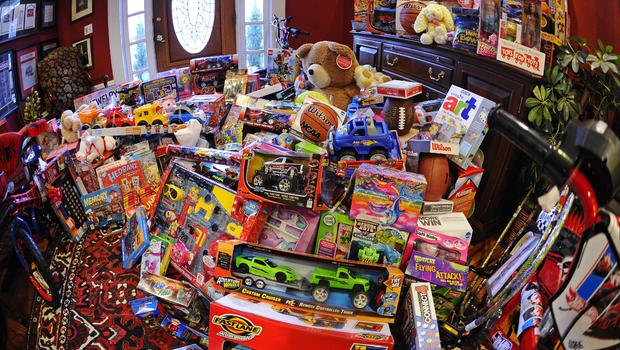Today I went to a warehouse after work to help sort toys from a charitable toy drive. It was a fun afternoon challenge – I got to help a good cause, spend time with coworkers, and learn a lot about what toys are popular with the kids these days.
The whole experience brought back childhood memories of my own toys (I found a boxed up exact version of a toy I received for Christmas in 2002). And after talking with a coworker, I started to think about how much our toys impact the course our lives.
As I looked at piles of toys sorted for toddlers, for 5-7 year olds, for 8-12 year olds, and so on, I started to realize that I was seeing a timeline of human development. You could tell a history of a human’s formative years in terms of the toys they played with the most.
Put another way, toys determine a child’s destiny (at least a little).
As smarter men and women than me have noted, play itself seems to be behavior evolved to (safely) teach the essential skills of life to young animals. Through the safe mimicry of play, animals and humans learn how to perform the tasks of adults. Just as baby lions might engage in play fighting, so small children in play may already have taken up the tasks of building or fighting or hunting or cooking or making or taking care of babies.
My own history with toys was with a series of construction and farming equipment toys, NASCAR matchbox cars (youngest), Star Wars LEGO, toy swords, and toy warriors of various varieties (G.I. Joe, Playmobil, green plastic army men). While I didn’t turn out to be a farmer, a construction worker, a racecar driver, a starship pilot, or a soldier, all of these toys “trained” me in their own ways. I spent countless hours in imaginary worlds with them, in playtime that shaped my imagination and creativity and instincts as an adult.
How different would I be if I had played more with dinosaurs, or chemistry sets? How different would boys and girls be if people started to “branch out” and give more traditionally masculine gifts to girls? Would our world be more or less violent if soldiery got left out of our toys for kids? These are all fascinating questions. We can be sure those hundreds and thousands of hours of play add up to something in every human, so the core question of “what toys made you who you are?” is all the more interesting.




